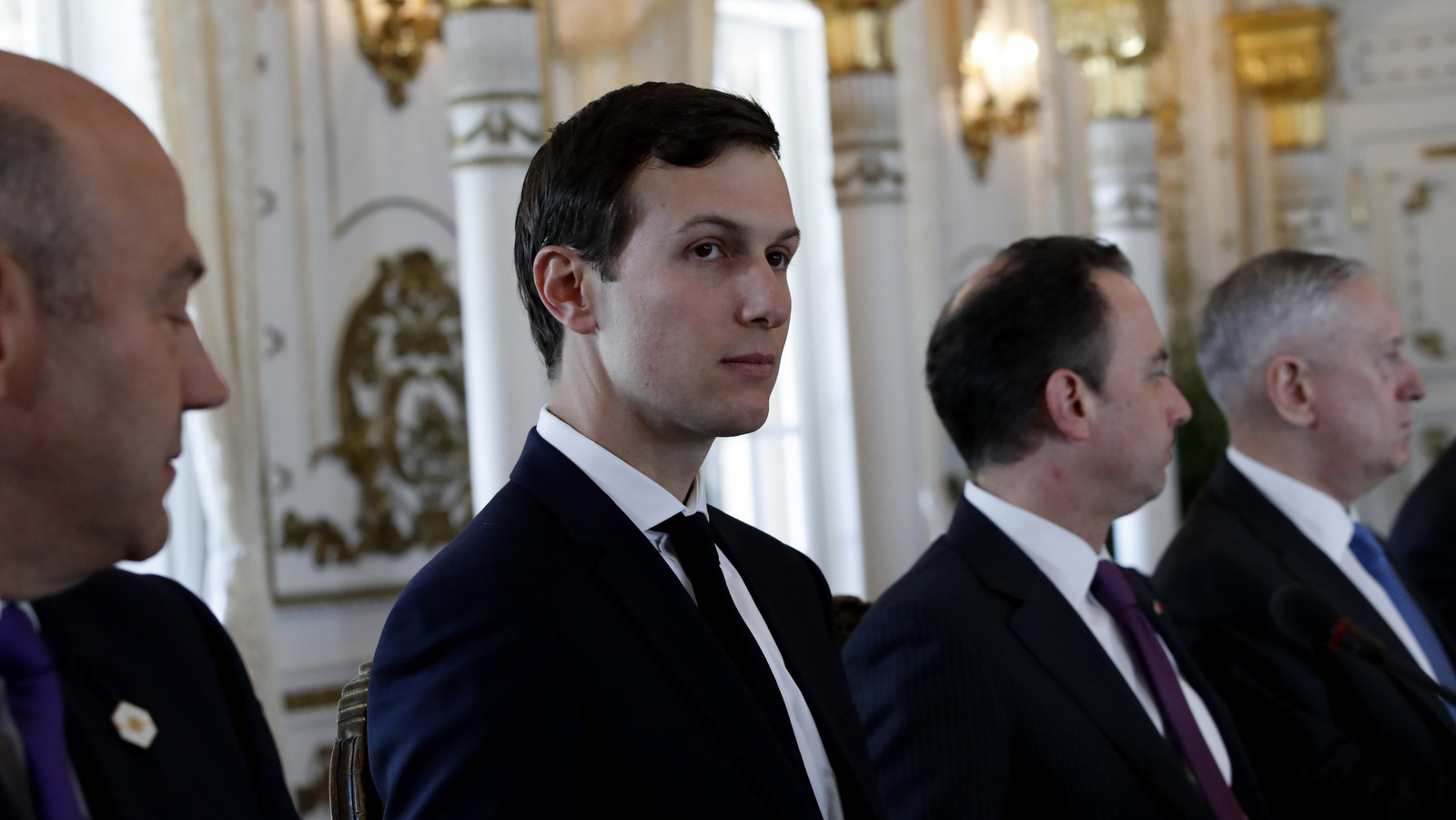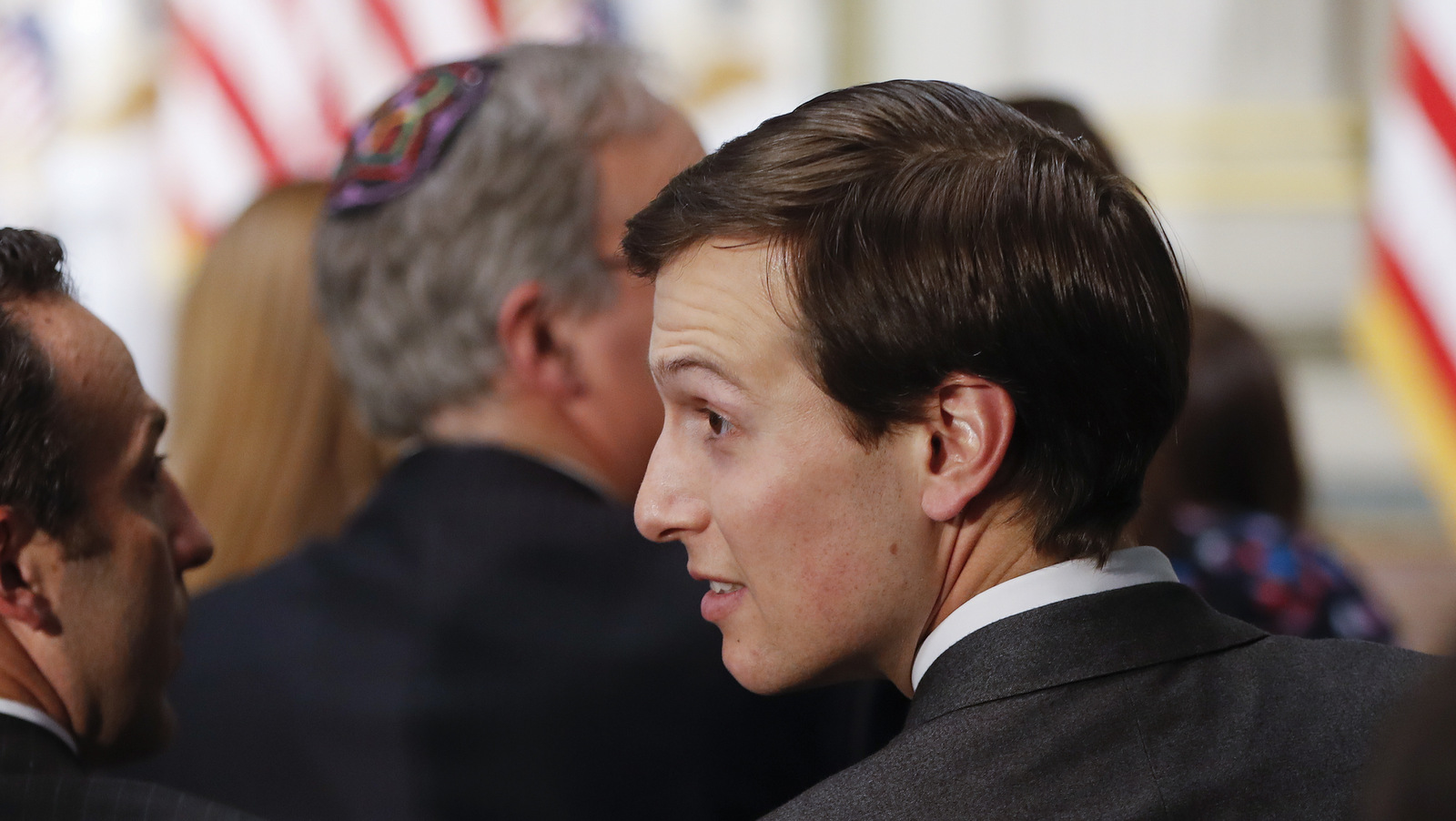Jared Kushner and the Neocon takeover of Trump
The Prodigal Son-in-Law: Jared Kushner And The Rise Of The Neo-Cons In The Trump Admin
Despite Trump’s campaign promises to not get involved in Syria or in regime change, it seems Kushner really is the “neo-cons’ back door” into the Trump administration.
By

White House Senior Adviser Jared Kushner, listen during a bilateral meeting with President Donald Trump and Chinese President Xi Jinping at Mar-a-Lago, Friday, April 7, 2017, in Palm Beach, Fla. (AP/Alex Brandon)
WASHINGTON DC – In the aftermath of Trump’s drastic escalation of U.S. involvement in Syria last week, many once-fervent Trump supporters were left scrambling for reasons as to why the President – who once fervently opposed U.S. intervention in Syria – had suddenly made a decision more befitting of his former rival Hillary Clinton. Soon after, reports began to circulate that it had been the influence of Trump’s daughter, Ivanka, who had convinced her father to fire 59 missiles into Syria after allegedly being “heartbroken” and “outraged” over the alleged gas attack in Idlib last Tuesday – an event which still has yet to be confirmed by independent investigators not affiliated with opposition “rebels.”
Taken at face value, the premise that the President bombed a sovereign nation because his daughter had an emotional reactions to photos of an unconfirmed tragedy seem patently absurd. However, the base assertion that Ivanka convinced her father to attack is likely true due to the strong connections she and her husband Jared Kushner share with a foreign government that has consistently supported regime change in Syria – Israel.
Interestingly, in the days and weeks preceding the U.S. attack on Syria, there are plenty of indications that Kushner was involved in positioning the Trump administration for a drastic change in Middle Eastern policy. Most notable among these was Kushner’s trip to Iraq in early April where he had been invited by Joint Chiefs chairman Gen. Joseph F. Dunford, Jr. “to meet with Iraqi leaders, senior U.S. advisors, and visit with U.S. forces in the field to receive an update on the status of the counter-ISIS campaign in Iraq and Syria.” At the time, many pointed out that Kushner had traveled to Iraq before Secretary of State Rex Tillerson, leading some to label Kushner a “shadow diplomat.”
Also, of interest was the ouster of controversial Trump strategist Steve Bannon from the National Security Council (NSC), taking place only days before the administration’s dramatic reversal on Syria. Incidentally, Bannon’s fall from grace – which has only accelerated in the week since his removal from the NSC – was due to his in-fighting with Kushner, proving that Kushner’s influence in his father-in-law’s administration is much more powerful than previously thought. While it remains unknown exactly why Kushner and Bannon were fighting, the drastic policy change in “national security” days later seems to speak volumes.
While Bannon is hardly anti-war or anti-Israel, it seems that Kushner’s commitment to radical Zionism and neo-conservative ideas put him at odds with Bannon – who considers himself a “populist” and is a long-time conservative, unlike Kushner. Indeed, Kushner – until 2012 – was a key supporter of Democrats, much like his father, the notoriously corrupt Charles Kushner, and donated thousands to Democrats like Hillary Clinton and Charles Schumer.
Israel First

White House Senior Adviser Jared Kushner, takes his seat to watch Vice President Mike Pence administer the oath of office to U.S. Ambassador to Israel David M. Friedman, March 29, 2017. (AP/Pablo Martinez Monsivais)
However, Kushner had no problem changing parties as his political leanings have been shown to only change in regard to one issue – Israel. In 2012, it was Kushner’s stalwart support for Israel, particularly Israel’s far-right, that ultimately led him to reject the Democrat Party and support Mitt Romney’s candidacy. “Rather than strengthen the nation’s relationship with Israel as the Arab world imploded, Mr. Obama treated Jerusalem as less a friend than a burden,” said the Kushner-owned New York Observer’s endorsement, summing up Kushner’s view on the matter in language that Trump would later echo.
Kushner’s unwavering support for Israel is obvious as any cursory examination of his background reveals. Kushner was raised in a wealthy Zionist family and met powerful Israeli politicians including now Israeli PM Benjamin Netanyahu in his teenage years. As an adult, Kushner has overseen the finances of his family’s “charitable” foundation which has donated thousands to illegal Israeli settlements as well as thousands more to the Israeli Defense Force (IDF).

This Oct. 24, 2016 photo, shows part of the Israeli settlement of Beit El, near the West Bank city of Ramallah. Tax records show the family of U.S. president-elect Donald Trump’s son-in-law, Jared Kushner, has donated tens of thousands of dollars to Israeli settlement institutions in the West Bank in recent years. (AP/Nasser Nasser)
Of particular interest among these donations was the $20,000 donation in 2013 to American Friends of Beit El Yeshiva, which supports one of the more extremist illegal settlements in the West Bank. The chairman of this organization, David Friedman, has been Trump’s real estate lawyer for the past 15 years and was selected by the Trump administration to serve as the U.S. ambassador to Israel. Friedman is noticeable for being against the two-state solution, a position that Kushner also shares according to journalist Robert Parry and others.
With Kushner’s “Israel first” mentality clear and his commitment to Zionism obvious, it is hardly surprising that Kushner, and his wife Ivanka, would push for a different approach to Syria than that promised by Trump during the 2016 election. A few weeks before last week’s U.S. bombing of Syria, Israel once again violated Syrian airspace and bombed targets on Syrian soil, causing one of the Israeli warplanes to be allegedly shot down. Despite being the aggressors, the Israeli Defense Minister Avigdor Lieberman told Israeli public radio on March 19th that “Next time, if the Syrian aerial defense apparatus acts against our planes, we will destroy it. We won’t hesitate. Israel’s security is above everything else; there will be no compromise.”
Regime Change

An Israeli soldier looks at a mobile artillery unit heading towards a position near the border with Syria in the Israeli controlled Golan Heights, Monday, April 27, 2015. (AP/Ariel Schalit)
While it remains unclear why Syria defending its own airspace is a threat to Israel’s security, the Syrian government’s recent gains against opposition rebels, particularly those actively supported by Israel and the United States-led coalition, may have prompted these foreign nations to act in order to protect their multi-million dollar investment in the rebels and the regime change agenda they were created to realize.
That would certainly explain the rapid and fierce reaction of both the U.S. and Israeli governments to still unconfirmed gas attack at Idlib that even some world leaders have labeled as a “false flag” due to inconsistencies and dubious accounts of the event. For instance, Zionist Union chief Isaac Herzog — the head of Israel’s opposition — tweeted, “What is taking place in Syria is a crime against humanity. The United States and the world must lead an aggressive policy to protect the innocent. Legitimizing the Assad regime means supporting a murderous regime.” Israeli Education Minister and HaBayit HaYehudi leader Naftali Bennett echoed Herzog when he tweeted, “Children are choking to death. The world must act against the chemical massacre in Syria. I call upon President Trump to lead this effort.” Other politicians from the U.S., Israel, and elsewhere also began to call for regime change in Syria in not-so-subtle terms.
This fierce reaction over the loss of an estimated 58 lives is unlikely the motivation behind the reactions of the U.S. and Israel as the U.S., a month prior, conducted an airstrike in Iraq that claimed the lives of over 240 civilians while Israel, for its part, killed 1,492 Palestinian civilians in 2014 alone. Thus, the most likely reasons for the U.S.’ and Israel’s recent outrage over the death of 58 civilians is unlikely to be the true motivator, making those nations’ long-standing commitment to regime change in Syria a more likely factor in explaining renewed calls for Assad’s ouster.
Kushner’s influence on Trump’s Syria reversal is telling, especially given that Israel stands to gain much more from Assad’s ouster than the U.S. By Trump’s own admission, U.S. involvement in Syria would only lead to more debt for the U.S. and yet another string of foreign policy blunders. Israel, however, stands to gain access to the massive oil reserves under the Golan Heights, the area of Syria that Israel has occupied since the 1980s. Israel has vowed to never return the region to Syrian control and would likely work to officially integrate it were Assad to be replaced with a leader more willing to accommodate Israeli interests. Despite Trump’s campaign promises to not get involved in Syria or in regime change, it seems Kushner really is the “neo-cons’ back door” into the Trump administration – pushing war to benefit specific political and economic interests, not the people.
